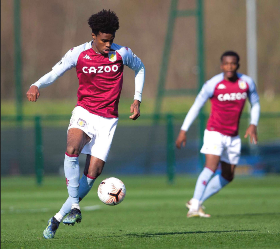Strength in unity: working to give fans of women’s football a collective voice | Football
It has always been the case that football without fans is nothing. The globalisation and commercialisation of the game may have eroded the idea of supporters as key participants and shifted them into the less influential role of consumer and customer but at the core there has been no change.
It has taken a global pandemic and the shut-out of fans for clubs, governing bodies and supporters themselves to be reminded of that. Football without fans is a reduced product and, in a time when the importance of support has never been clearer, fan organisation is vital. From season ticket refunds and the safe return to stadiums to coordinating in local communities, supporter input matters.
In women’s football fans have been underrepresented. Supporters groups have sprung up organically around clubs and the national team but there has been no central organisation that can help place fans more formally in discussions on the development of the game in a way that is beneficial for clubs and the FA as much as it is for the supporters themselves.
However, the Football Supporters’ Association has been at the centre of fan organisation in the men’s game for decades and is now working to help supporter groups build a collective voice of fans in the women’s game. The FSA Women’s Game Development organiser, Deborah Dilworth, says it is offering “a level of expertise from the men’s game which, hopefully, there’s a certain level of respect for”.
At the 2019 Women’s World Cup in France the FSA organised the “Free Lionesses” fan bases for the first time providing match check-ins and a free guide covering travel, host cities, embassy locations and more. “We used that as a springboard to try to determine whether fans did want to support,” says Dilworth. “We spoke to over a thousand fans and it was very clear that there were already some supporters groups that had been set up and also that they wanted to push forward.”
Dilworth was in every city England played in, with boxes of guides to hand out to help provide somewhere for fans to meet and socialise in areas that often felt fairly oblivious to the fact a global tournament was taking place. “I talked to fans about creating more of a domestic voice on a local and a national level,” she explains. “From August last year, once I’d come back from the World Cup, I just started to reach out to all these groups to try to sign them up to be FSA members. Chelsea were the first women’s group to join.”
It is not as simple as just signing groups up. They exist in very different forms, many are not formally constituted, some groups are just a cluster of friends and others start with one person and a Twitter account. “Now the groups are forming and they’re starting to see what structure they might want to be. They might want to be an atmosphere group, or they might be more of a general group or a diversity group, it just depends,” she says.
In less than two years Dilworth has managed to sign up four affiliate members and 16 associate members showing “the levels that we could potentially reach, and to the benefit of everybody”. They are already coordinating through network calls and have a WhatsApp group “because we’re all quite new and it’s just important for me to make sure that they’re having a chat with each other as well”.
With the FSA’s new interest in women’s football there was a fear that their involvement would worry established fans, but instead supporters have “really bought into the idea that they could be better as a bigger voice which is amazing”, she says. “They’ve gone out, they’ve really believed in what we could potentially achieve and have started to encourage other people to come into the fold.”
The network of groups is already starting to feel the benefits of being a collective, having had a briefing meeting with the FA which “shows a level of respect” and the FSA has also suggested the network should meet directly with the leagues, “following a similar pattern to what happens in the men’s game”.
With growing attendances and fan involvement critical to the next phase of growth in the women’s game, bringing the network into the decision-making fold makes sense all round and it is important that supporters groups are not just treated as team cheerleaders. “We want them to be involved in many of the decisions, not just the match-day experience but what the clubs are actually doing, their finances and that kind of stuff,” says Dilworth.
“There’s just so many benefits to that and in the women’s game there’s such an opportunity because everybody is on the same page with trying to grow supporter bases, so let’s get it right from the start. Fan representation and fan voice is so important to the running of clubs. Why would you miss out all of your main stakeholders especially within the women’s game because you’re trying to grow that fanbase as well?
“We realise that some decisions are confidential or that there’s lots of little decisions that need to be made but on the bigger issues it’s always better to try to get a fan’s perspective because actually, you might miss something that they know about in a very practical and real way.”





